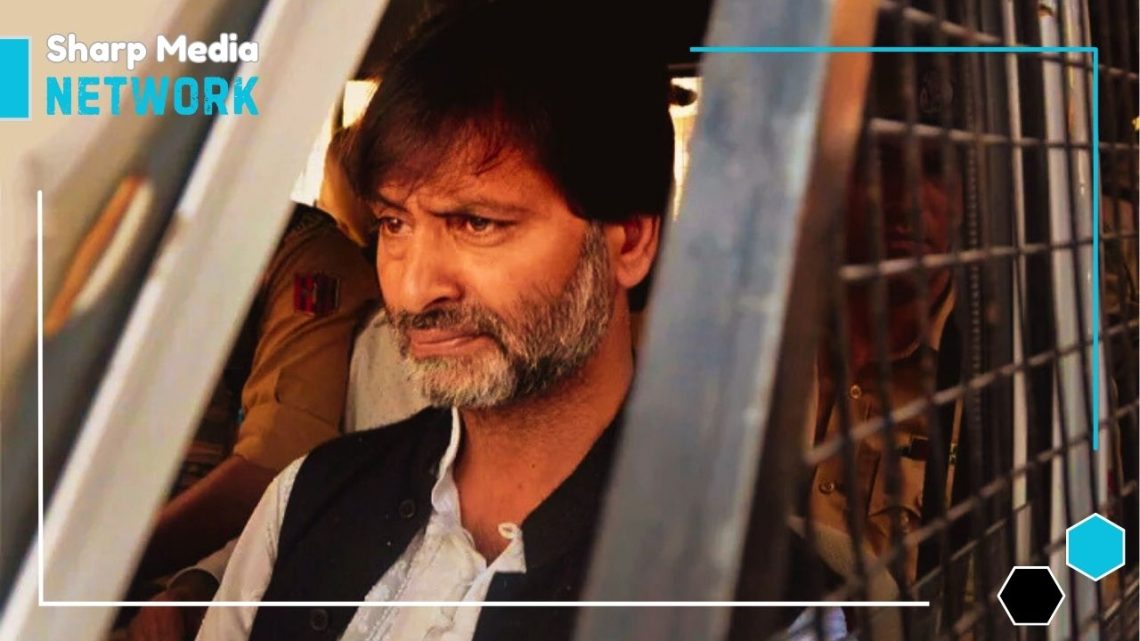
Yasin Malik’s Case: A Harrowing Tale of Legal Manipulation and Human Rights Violations in Kashmir
December 23, 2024On May 19, 2022, Malik was convicted by India’s National Investigation Agency (NIA) for conspiracy and waging war against the state—a 30-year-old case many view as politically motivated.
The case of Yasin Malik, a prominent Kashmiri pro-freedom leader and chairman of the Jammu and Kashmir Liberation Front (JKLF), has spotlighted the growing concerns over India’s judicial processes and human rights violations in the disputed region of Jammu and Kashmir. Critics accuse the Indian government of leveraging its judiciary as a political tool to suppress dissent and advance its Hindutva-inspired agenda.
Political Undercurrents and Judicial Manipulation
The Bharatiya Janata Party (BJP), led by Prime Minister Narendra Modi, has been systematically tightening its grip on Indian-administered Jammu and Kashmir (IIOJK) since 2018. Beginning with the dissolution of Mehbooba Mufti’s government and the imposition of governor’s rule, India revoked Articles 370 and 35A in 2019, stripping Jammu and Kashmir of its special status. The move was accompanied by a slew of controversial measures, such as granting domicile rights to non-residents to alter the region’s demographics.
In tandem, the BJP has reportedly used fabricated legal cases to incapacitate political leaders in IIOJK, including Yasin Malik. On May 19, 2022, Malik was convicted by India’s National Investigation Agency (NIA) for conspiracy and waging war against the state—a 30-year-old case many view as politically motivated. Human rights organizations, both local and international, have raised alarms over the fairness of Malik’s trial. Despite his demands to appear physically in court, he was forced to attend hearings via video conference, a situation that denied him basic legal rights.
International Condemnation
Human rights activists and organizations have decried Malik’s trial as emblematic of India’s coercive policies in IIOJK. Al Jazeera and other international media outlets have labeled the charges against Malik as a clear case of “political vendetta.” Malik himself has questioned the legitimacy of the allegations, pointing out his past interactions with Indian prime ministers and his global engagements as evidence of his peaceful activism.
Pakistan’s Foreign Office termed the developments “highly reprehensible,” accusing India of violating international human rights laws, including the Universal Declaration of Human Rights (UDHR). Prominent activists like Khurram Parvez have highlighted the lack of due process in Malik’s trial, while researchers and analysts fear the BJP government is paving the way for Malik’s “judicial murder,” akin to the execution of JKLF founder Maqbool Bhat in 1984.
A Dangerous Precedent
The Indian government’s latest move—seeking the death penalty for Malik in the Delhi High Court—has intensified these concerns. Many believe the BJP is attempting to exploit Malik’s case to consolidate its voter base ahead of the 2024 elections. This tactic, critics argue, is part of a broader strategy to silence dissent in IIOJK and further entrench its narrative on Kashmir.
The international community, including the UK Parliament, has voiced unease over Malik’s treatment. Lord Qurban Hussain and others have underscored the potential dangers to his life, calling on global human rights bodies to intervene.
The Path Forward
As Malik’s next hearing approaches in January 2025, the case remains a litmus test for India’s commitment to justice and democratic principles. For Kashmiris, it underscores the harsh realities of living under a regime accused of subverting judicial norms to stifle resistance. The world must scrutinize these proceedings to ensure that human rights and fair trial principles are upheld in this deeply contentious and politically charged case.

